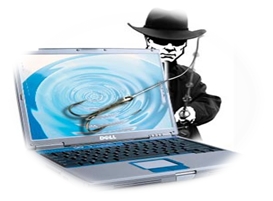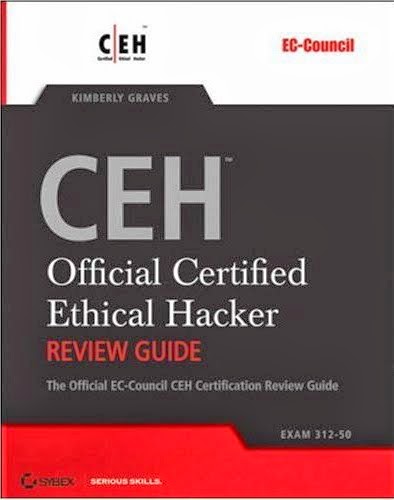The Top 10 Most Infamous Hackers of All Time
Who among us has not been victimized by a virus? Not the virus that can make a person sick, but the kind that can cripple your computer, or worse, the entire network you are on. The culprits are those amazingly talented people who possess the ability to come up with programs to break into other people’s gadgets. Sometimes, they do it just for the heck of it and annoy the hell out of us. Other times, they use it to steal valuable information.Regardless of their reasons, here is a list of the top 10 most infamous hackers of all time.
 Connect me on Facebook :-
Connect me on Facebook :-1. Kevin Mitnick
Kevin Mitnick does not like being called a hacker. He instead claims to be a social engineer, who has broken into the systems of Nokia, Fujitsu and Motorola. He was arrested in 1995 and served five years in jail. He now runs his own computer security consultancy company.
2. Kevin Poulsen
Kevin Poulsen started out with an amusing hack into the phone lines of a radio station that allowed him to be the 102nd caller, which made him win a Porsche. He also broke into the phone system to reactivate old numbers. Poulsen was able to hack into the federal investigation database. After he was featured on the TV show Unsolved Mysteries, the numbers posted for information leading to his arrest mysteriously crashed. He has since been imprisoned and released. He is now a Senior Editor for Wired News.
3. Robert Tappan Morris
In 1988, a graduate student from Cornell University who also had a bachelor’s degree from Harvard University, decided to make use of his Ivy League education to test the size of the Internet. He did it by creating the Morris worm. The worm ended up affecting 6,000 major Unix machines, practically shutting them down and causing millions of dollars in damage. It was probably the first worm of its kind. Morris was eventually caught, fined, sentenced to a three-year probation, and ordered to conduct community service. The disk that he used to write the worm is now on display at the Boston Museum of Science. Morris himself is now a professor at the Massachusetts Institute of Technology.
4. Michael Calce
He was only 15 years old and was probably pining for a girlfriend like a typical teenager, but Michael Calce was able to cause the temporary shutdown of sites like Yahoo, Amazon and eBay. Using the name of MafiaBoy, Calce hacked to the large commercial sites that led to denial-of-service attacks across 75 computers in 52 networks. He might have gotten away with it if he did not boast about his feat in an online chat room. He was sentenced to eight months of open custody, a year of probation and a small fine. He was also restricted from using the Internet.
5. David L. Smith
Back in the nascent days of the Internet, usenet was all the rage. Just like the beginning of time until now, sex was one of the more popular topics. David L. Smith took advantage of this to spread the highly notorious Melissa worm virus. The original form was distributed by email, making it the first malware to be successfully transported through this method. Experts estimate that the virus caused as much as $80 million in damages. Smith was later arrested and sentenced to jail.
6. Sven Jaschan
In 2004, the wired world was bothered by a series of worms that eventually became known as Netsky and Sasser. It spread so quickly that in just a short while, the worms accounted for as much as 70 percent of all the malware spreading at that time over the Internet. Amazingly, the offender was only a mere teenager. His name was Sven Jaschan and he was arrested and tried in court. Owing to the fact that he was still just a teenager, he only got a suspended sentence, though the judge ordered him to report to a probation officer regularly for the next three years. Still, talent like that is hard to find, so despite his criminal background, he was immediately hired by a security company to help come up with antidotes to computer viruses.
7. Adrian Lamo
Adrian Lamo was a mobile hacker who launched his work from the confines of Internet cafes, libraries or coffee shops. He actually did it just as a challenge and for fun, as he would regularly break into computer systems and then immediately tell the owner of the network about its vulnerability. He even made himself an expert by adding his name to the database of the New York Times. He was arrested in 2003. He was also the one who turned in Bradley Manning, who had leaked government documents to Wikileaks.
8. The Masters of Deception
During the 1980′s, a group of hackers banded together to form the Legion of Doom. It aimed to break in to the networks of giant corporations and simply wreak havoc in it. Later on, some members of the group decided to form and spin off a rival new group. They were all based in New York and they called themselves the Masters of Deception, or MoD. The group’s most famous victim was AT&T, whose system was broken through by MoD, allowing them to hack to the company’s vast phone network. It was only in 1992 that the group got busted, with its members going to jail or receiving suspended sentences.
9. Stephen Wozniak
The co-founder of Apple started out as a hacker. While studying at the University of California, Berkeley, he bypassed the phone system by phreaking. This allowed him to make free long distance calls. He even used it to call world leaders like the Pope. Not long after, he started working with Steve Jobs to create Apple Computer.
10. Loyd Blankenship
Loyd Blankenship does not have a hack that can be solely attributed to him. He was a member of the Legion of Doom, however, that rivaled the Masters of Deception, or MoD, during the late 80′s. Known as The Mentor, his claim to fame is authorship of The Hacker Manifesto, which he wrote after his 1986 arrest. It defended hackers, claiming that they only do it to satisfy their curiosity.
11. Deepak Bhardwaj Hacker form india Uttar pradesh who have a very good in Forensic Investigatiion and Ethical hacker. And Secure their Country from Other country Hacker' Deepak Bhardwaj are a simple person they are not good in study but in I.T Field they have Lead many professional hacker







.jpg)


















.jpg)



















